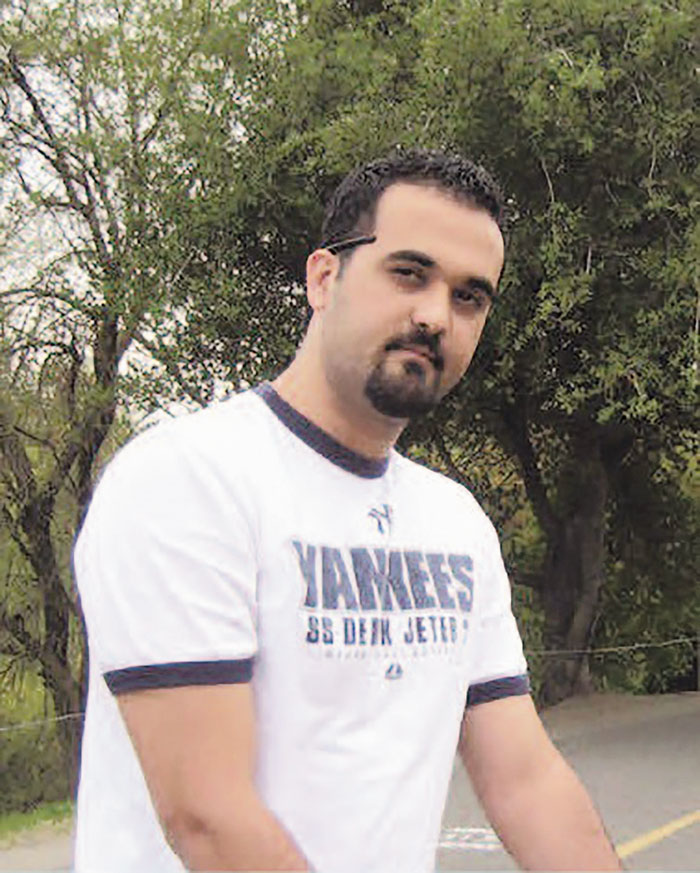The body of the man whose death, 7,000 miles away in Iraq, unleashed a geopolitical crisis lies in an unmarked grave below a mound of moist earth, on plot E-233 at the Greater Sacramento Muslim Cemetery. His grieving widow remains behind closed doors.
It has been almost three weeks since Nawres Waleed Hamid, a naturalised citizen who grew up in Iraq, became the latest American to die in the Washington’s nearly two-decade-long military entanglement in West Asia.
His death in a rocket attack in December in Kirkuk, where he was working as a translator for the American military, was quickly seized upon by President Trump, touching off a chain of events that for several days set the world on edge.
An Iran-backed militia was blamed for Hamid’s death, and President Trump responded by ordering the killing of a prominent Iranian general, prompting retaliatory missile strikes by Iran against American troops inside Iraq.
Though tensions between Iran and the US may have lessened since that moment when the two nations edged close to war, in Sacramento a sense of unease remains.
Citing Hamid’s death as a reason for military action against Iran — calling him an “American contractor” without mentioning that he was an immigrant — made the President’s posture especially stinging to some Muslims here, who have felt marginalised and vulnerable in recent years as the Trump administration has clamped down on immigration.
“That an Iraqi American Muslim immigrant was used as a pretext for military action in West Asia is ironic,” said Basim Elkarra, the executive director of the Sacramento chapter of the Council on American-Islamic Relations. “It was shocking.”
Like Elkarra, many people in Sacramento’s sizeable Muslim community are angry over Hamid’s death, but have mostly chosen to keep their outrage private. Partly, that is because Hamid kept a low profile, with one foot in the US and one in Iraq, and few people in the Sacramento area knew him personally. Hamid studied in California to become an American citizen yet returned to Iraq to work — something he kept silent about with his circle of acquaintances.
Still, the reticence and angst offer a glimpse into how many people in Sacramento are wary of attracting attention because of their ties to West Asia and fears over racist attitudes towards Arab immigrants.
Even for a US citizen like Hamid, for example, going to work for the American military in Iraq can be as controversial as it is lucrative, and not something to showcase. In Iraq, Iraqis who work for the American military have long been targeted as traitors by anti-American militias, and have sometimes been killed. Even in Sacramento, going back home to work can be difficult: Iraqis in the city may be proud American citizens,
but many are still critical of American policy in Iraq,
blaming the US for the violence and destruction of their homeland.
“You could be a translator at a time of peace for the US embassy in Switzerland, and there would be no issue,” said Mounir Kaddoura, an American of Palestinian heritage who runs the funeral home in Sacramento that prepared Hamid’s body for burial.
Kaddoura said the Muslim immigrants he knows love America but are tired of endless wars in West Asia and want American forces out of the region.
“But God forbid, if someone was attacking California, I’d grab a gun and fight,” he said.
Many in Sacramento are reluctant to even discuss Hamid’s death, for fear of retribution against relatives in Iraq, where armed groups are known to monitor digital media.
“People are afraid to comment online about the political situation because it can affect their families back home,” Elkarra said.
The Sacramento Valley is home to some 75,000 Muslims, according to Elkarra, including thousands of Iraqis and Afghans who fled wars.
There are more than 20 mosques in the region, serving different sects and ethnicities, as well as countless cafes, restaurants and grocery stores that cater to West Asian immigrants.











